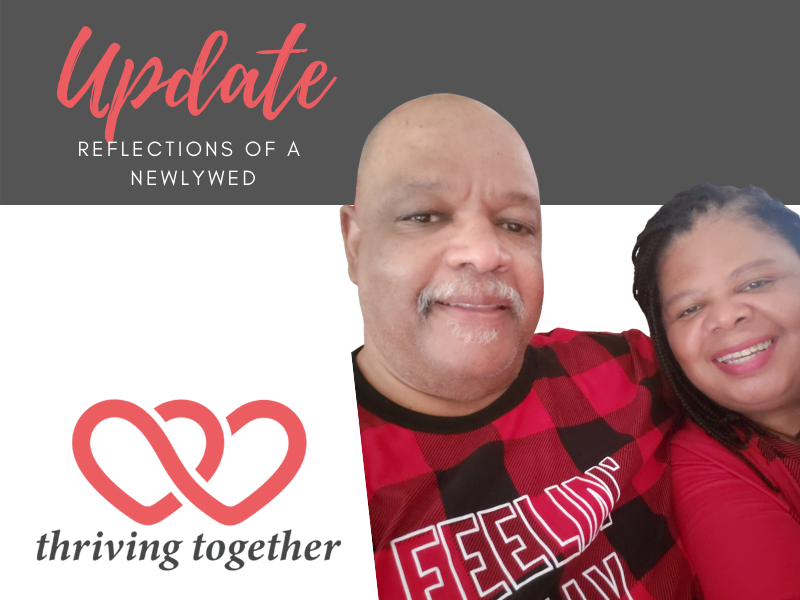
Reflections of a Newlywed
Reflections of a Newlywed

Reflections of a Newlywed: Lessons Learned From One Year Of Marriage
A little more than a year ago you all reached out to my husband, Harold, and me on our exciting new journey as a married couple. We are so grateful for all of the wisdom that you shared with us.
Since we have been married a year now, and as an ode to National Marriage Week, I thought you may be wondering how we are doing. We are doing great!
Here are just a few of the nuggets of wisdom passed onto us, which we really relied on this first year:
- Overcome stressors in your marriage by making your marriage a priority
- Never criticize your marriage in public and keep your marriage off of social media
- Be intentional about serving in your marriage
- Pray together
- Never end an apology with “but”
- Life is going to happen no matter what’s going on, so share these things with your partner.
“We are bringing you along with in a new life together. And, we’re going to be learning along the way.”
The gift of this advice was timely and helped us overcome unforeseen challenges that arrived after the wedding.
I have only shared this with a small group of people, however, shortly after we were married, Harold suffered a stroke. It was traumatic for us both. I thought to myself, “we just got together, Lord please don’t take him from me.” We had a tough hill to climb, but we were both strong mentally and we leaned on each other to get through it. Now that Harold is a lot better, he said he drew his strength from us, and we both realized it made us stronger.
What did we learn from all of this:
1) We learned that mental support is needed just as much as medical support. It’s like a diet without exercise..
2) We learned well-being as a couple is also just as important as it is for individuals.
3) We also learned that community and a social network helps you get through it all.
Our community provided us with strong advice and principles which we continue to integrate into our marriage. We talk a lot about community at Georgia Center for Opportunity, which is why we think it is important for you to experience community in our Family Life Education classes. In these classes we equip and empower you with the knowledge and skills that help you to become resilient.
As Harold and I continue our marital journey, we hope these words of wisdom will help improve the quality of all of your relationships. For those looking for a little extra nudge, The Family Life Classes are available along with our Healthy@Home, and Thriving Together series on our website.



